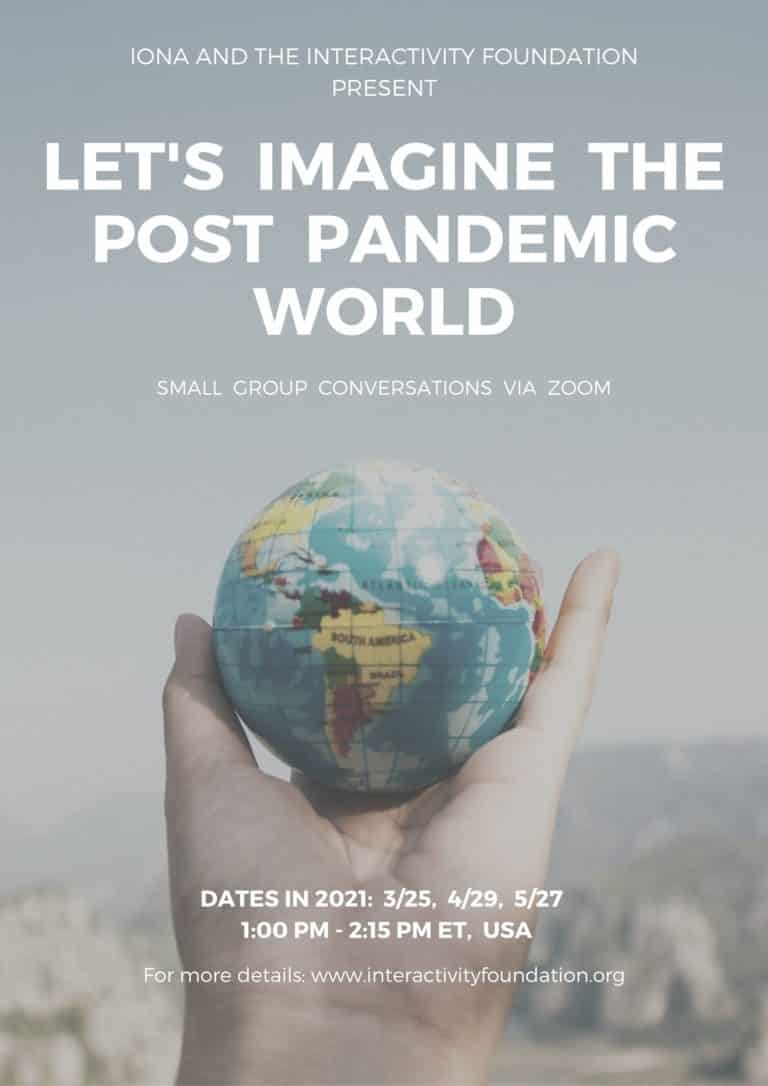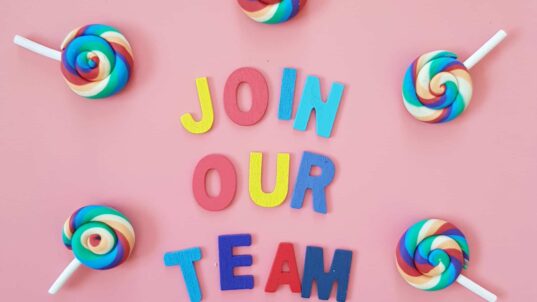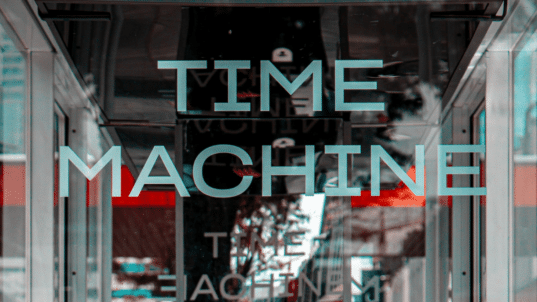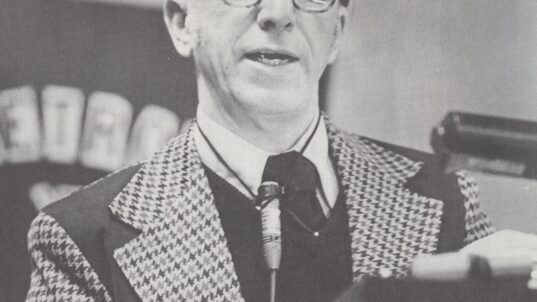
The Interactivity Foundation invites you to join us online on Thursday, April 29th at 1 pm (ET) for the 2nd session of this 3-part series, Let’s Imagine the Post-Pandemic World. In this 2nd session, we will focus our exploration on reflecting upon how our cities and transportation have changed—and imagining how the future of our transportation, travel, and cities might look like. We hope you can join us. Participation is free, but advance registration is requested. Click on the following button to register for this session.
The first session in this series was held March 25th and asked participants to discuss what has the pandemic revealed about our society and its communities. Below you can find a full discussion summary of the many ideas discussed in this first session.
Session One: Discussion Summary
In the first session, we asked participants to share their observations about changes they noticed due to the pandemic—something the pandemic caused or revealed either in their lives or society at large. We had thoughtful and wide ranging discussions in the three breakout rooms. But perhaps they could be summarized in the following two sentences: 1) the pandemic makes you recognize human weaknesses and the weakness of our society—it is a small virus but it hit so many aspects of our society and economy and it killed so many; and 2) the pandemic revealed some major tensions and inequalities in our communities, societies, and the world.
What Has the Pandemic Revealed—The Big Picture
- The danger of viruses was brought out to the forefront of our society.
- We should have been better prepared to deal with the scope of the pandemic. People like Bill Gates have been warning us about such possibilities for years. There were articles written about pandemics almost two decades ago and we even had some simulations in 2019. And yet, the entire world was choked by the pandemic.
- We should not forget the death toll. It is an atrocity in a well-developed society like ours. We need a good healthcare sector. In the U.S., we don’t have one unifying health care system, we have 50 systems. It is a problem not only in healthcare, but in education as well. This results in huge costs to our society, because we cannot implement things as fast as we need to during a pandemic. Our governance is stuck in the 18th century.
- We are human beings in it together. What do we owe to each other—and to the country, the world? How can we balance individual rights and the common good?
- Are we sharing enough resources in our communities—and globally? We don’t share enough resources with others around the world—resources that others need to survive.
- The private sector can’t meet the challenge of the pandemic—we can’t do it on our own. The pandemic makes clear the need for a strong governmental response focusing on the common good.
- The pandemic has been difficult, but I also saw some blessings coming out of it. Some people began to look at life differently. People began asking bigger questions and looking in new ways. Before the pandemic, it was too easy just to get caught up in things. Stopping to smell the roses has its rewards as well.
- The proliferation of disinformation about the disease and the vaccine has been magnified.
- We are a divided country not just politically, but even over the pandemic. Why do people refuse to believe in science and vaccines? We need to do things for the greater good. Wearing a mask is not much to ask, is it?
- International perspective: before (and during) the pandemic, refugees throughout the world miss out on the “normalcy” of homes, jobs, secure/stable food supply; sanitation, etc.
- There is real suffering on the individual and social levels, and we should not forget that as we work together to improve our society.
Pandemic Reminded Everyone About How Fragile Our World Is
- We are all greatly affected by and subject to events from all over the world—whether a virus outbreak in China, or a tanker stuck in a canal, or melting ice in Greenland. We’re interconnected and interdependent.
- I was not able to buy a mask at the beginning of the pandemic. This revealed how fragile our supply chains can be. So much of production happens in other countries and even continents. A question raised by the pandemic: what should be localized vs. globalized?
- In Spain the pandemic revealed individual isolation and weak social ties.
- Our multiple jurisdictions and bureaucratic snafus also contributed to excess deaths.
- Our infrastructure—especially our healthcare infrastructure—is weak, rusted, dilapidated, or nonexistent. We lack governmental capacity to provide healthcare and vaccines, to handle logistics, and to govern across many jurisdictions; also to combat misinformation and to evaluate risks and respond.
- The effects on business, especially small business, were awful around the world. I feel sad seeing so many businesses closed. In Spain small business and communities are dying. They are not able to survive.
- But we are resilient too. We have developed the vaccines within a year!
The Pandemic Effected Us on an Individual/Psychological Level
- Emotional shut down or numbness; just holding our breath; I can’t handle so many crises at once.
- People are scared for their health. They are dealing with great uncertainty about health and work.
- The mental distress is huge. All of us lost our routines and many of our usual coping mechanisms are not available during the pandemic.
- The fear is real—“I am afraid to go out; I am afraid that we won’t find a cure; that our hospitals will be over-run.”
- “I have become much more reflective, much more focused on what really matters.”
- “I am an introvert, but I do not like being forced to do something, like being isolated. I will be compliant though.”
- “The pandemic has not changed my life a great deal since I live in a rural setting in a remote spot.”
- Dealing with grief: “I lost a few friends to the pandemic.”
- On the other hand, I find myself and others “reaching out” much more—engaging in conversation more with neighbors and even passers-by.
- “We had backyard fireside chats in our neighborhood during the pandemic. Now I know more of my neighbors than I did before the pandemic. So being confined to a smaller area was very valuable to me and there were some things that countered the experience of social isolation that some people had to endure.”
The Pandemic Changed Our Human/Social Interactions
- The pandemic brings out the best in some people, makes them want to help others.
- The pandemic reveals how much altruism there is in the world. The kindness of people reaching out to each other around the world. The kindness of neighbors reaching out to each other.
- The pandemic reveals many positive things about people, for example, how supportive neighbors can be (in D.C. everybody wears a mask; but that is not the case in every state/community in this country).
- I was pleasantly surprised by people being polite and giving space to physically distance when outside.
- At first, the pandemic seemed like it could be a good opportunity for our society to take a pause—a time of relaxation, where people would be kinder to one another. Now it seems like there’s pandemic fatigue—people are no longer so kind.
- There is more loneliness in the world.
- “Our world has both shrunk (people can’t get out or travel) and expanded (people moved online). The social distancing has greatly limited our physical contact, our ability to get together. “I don’t go out, get out—other than for church.” I am amazed at the rapid shift to online meetings and activities for everyone-at work, at home, for appointments (tele-medicine) for organizations.
- In the U.S., some people are very protective of other people—they wear masks even when they are fully vaccinated. In Spain people began using masks preventatively even before the authorities asked for it.
- The pandemic revealed how few people in U.S. believe in science. Many do not wear masks at all. Even if you do not believe in science, is it too much to ask to wear a mask for social solidarity?
- Concerns about super spreader events and people ignoring mask mandates.
- The growth of vaccine hesitancy. (Consider the historical roots of government abuse of minority populations for scientific studies.)
- Growth of anti-maskers—they say it infringes on their rights
- It is hard to understand, especially when a mask is such a little thing and it helps the person and helps others
- Consider the Darwin effect—will anti-maskers/anti-science people tend not to survive?
- Need a sense of humor—people say, “God gave me this face to be seen, not to be covered”—so I respond, “yes, that’s why I should be allowed to go around naked”
- With a sizable portion refusing to get vaccinated; “makes me angry”
- “Denialism” about the pandemic, the need for social distancing, masks, etc., and most especially in the U.S. and by our former president contributed to hundreds of thousands of unnecessary deaths.
The Pandemic is Forcing Some Cultural Changes—Some of them Might Be Here to Stay
- Our cultural life has stopped. If the arts are the soul of a community, then what is happening to our souls?
- “I am not out and about anymore. My habits are changing. Even if I buy food in a restaurant, I don’t linger. I feel uncomfortable. I lost that freedom that I have enjoyed.” Will that change our culture/society as well?
- Southern European culture is that people meet in bars and restaurants all the time. Now everything is closed. People are very uncomfortable in such isolation. People are used to being and doing things with others all the time. They do not know how to spend their time now. In Spain many bars and shops are closed. That is changing our leisure culture. People are shocked. People hope that things will go back to normal after the pandemic. But that is not necessarily so—and some things will change dramatically.
- Cultural life in Wisconsin is centered on taverns and all of them have been closed during the pandemic—talks about sports or politics are gone.
- My social life improved during the pandemic, because I began interacting with neighbors more.
- Many people began to work from home. Now many businesses want to make this change permanent. How will our work culture change? What about all these office buildings?
- How will adults’ interactions change? Will we rather Zoom in to some events than go to them? If so, what will be lost?
The Pandemic’s Effects on Parents, School and College-Age Students
- The challenges were immense to working parents with school age children: scheduling; teaching at home; working with “online” kids; lots of household stress. Many young families were hit hard. Parents not only have to work from home—if they are lucky to have jobs—but also to support kids’ online schooling. That all stresses families out. A big concern, because a family is the basic unit of society.
- The pandemic revealed adaptability. Much of education moved online. But there is lots of variation in school response.
- Kids have responded differently; some have thrived with online learning; many have not. Kids are missing out on interacting with peers. What will be the developmental implications for very young kids who are growing up without interacting with other young kids?
- What is the quality of education that kids are getting from these online classes?
- The pandemic showed how some systems should change. E.g. Spain does not allow home-schooling. Perhaps now they will.
- The pandemic affected college-age students too; they’re missing out on the whole experience—just sitting in their dorm rooms; also they are not having internships (i.e., making connections needed for jobs).
The Economic Impacts—Considering Just the Short-Term
- Large swaths of global economies just stopped—virtually all of them and at the same time.
- We realized who are essential workers and began to appreciate them more. It is sad how little they get paid. Concerns about access to healthcare and living wages. People who are most vulnerable have to continue to work, usually at minimum wage, and they are stressed out from that. That is a societal failure. The pandemic amplified that.
- The economic stress is significant in certain sectors and communities. Many Americans lost their jobs. Some of them got into debt because of it and that will have consequences for years to come.
- The importance of money or financial means in dealing with the pandemic
- g., Chile—people are told the importance of hygiene, but the poor don’t have access to clean water
- Overcrowded housing means you can’t have social distancing
- Poor people have to go out and work—can’t afford to be at home or their work can’t be remote
- Small businesses were hit hard. Many of them closed. In Spain small businesses and communities are dying. They are not able to survive; partly due to government regulations that allow businesses to be open only until 6pm. So small businesses are closing and transferring business to medium and large-size companies.
- Some business sectors are on the brink of collapse; specifically those that depend on travel/mobility and/or face-to-face contact. Just think of restaurants, the travel industry (hotels, resorts, airlines, train services, public transit), live-entertainment, art events, and museums.
- But not everyone is suffering. Some are very competitive. Some large businesses are doing well.
- The pandemic has emptied public transit—how will it survive without the income from fares? “I would have been happy to pay, but they stopped accepting fares to lower contact points.”
- It is great that we were able to supplement unemployment so much that some people got more money than they had earned.
- I am concerned about people who fall through the cracks completely. People who do not even get the government’s stimulus checks. I am talking about homelessness and homeless families. I don’t know what we can do to make sure that 100% of the people are doing OK.
- People were working from home before the pandemic. But the pandemic accelerated this trend. I miss the office socializing though – the spontaneity, the ability to organize and resolve things quickly, directly, to share ideas with colleagues. I also wonder about the impacts on office real estate.
The Pandemic Revealed the Importance of Competent Government
- The U.S. government’s reputation was that it is well-organized and competent. I was surprised to see it fail at dealing with the pandemic.
- I am amazed and disappointed at the failure of the US government’s response to the pandemic (from a foreign perspective)
- For years, people have been pushing the idea that the private sector is better than government (normally I prefer to focus on the private sector), portraying government as a necessary evil, but now the vital role of government is obvious.
- It is encouraging how bold governments are in their policies. E.g., about 1/3 of the US money supply ever was added in the last 18 months with all the stimulus. We will learn a lot from the different kinds of social and economic experiments happening around the world.
- We don’t have enough collaboration among the states and countries. Perhaps we do with the vaccines now. But not enough. E.g., one state does not require to wear masks and works in full capacity, while another does not. We should collaborate more, share information, and learn from each other.
- In Italy the government restrictions on business are not in line with how people actually live and their basic habits, such as, meal times.
- The pandemic reveals the importance of competent government, free from corruption.
- The government was effective in helping some businesses.
The Pandemic has Illuminated or Magnified Our Social Problems
- The pandemic revealed existing equity issues, especially in minority communities. It re-emphasized how far we have to go in society to provide basic social goods in an equitable manner.
- The pandemic has sharpened the degree of inequality in our society—burdens of sickness, death, and lack of access to care fall disproportionately on the poor and racial minorities in the U.S.
- I am disappointed with the amount of inequality in access to medical care, like vaccines, around the world.
- The pandemic revealed great mental strain. Before the pandemic, Spain was the leader in its population consuming the most anti-depressants in the European Union. Things just got worse during the pandemic.
- The economic divisions – income/wealth inequality is huge and it greatly affects not only how you experience the pandemic (jobs/income, housing, access to education, health care) but also your chances of dying from it.
- The digital divide—whether you or your household has a computer; whether you have (can afford) internet access at home. Now with many libraries closed, it is really hard to get online for many people—at the precise moment when it is so crucial to be able to do so.
- This pandemic revealed a great gender inequality. Working moms still doing it all, including home-schooling the kids. In Italy, for example, about 94% of the jobs lost were lost by women. Also, unfortunately, it seems that there was lots of domestic violence against women, and women could not leave or ask for help because of the lockdowns. Complaints spiked after the lockdowns—really sad to see.
- Other divisions: whether you live in a blue state that mandated masks and social distancing…or a red state that treated these safety measures as a cultural choice.
SOME POSITIVE THINGS THAT THE PANDEMIC HAS REVEALED
- Families are spending much more time together. With the exception of families where abuse is happening, it is a very positive development.
- Meeting and talking with people that I would not have otherwise met. Now, when I am out and people want to chat, I am much more willing to spend the time. I am a little bit more laid back.
- Technology allowed people to connect—and especially populations that have some mobility issues or live at great distances. Older Americans are mastering technology. It greatly expands our ability to connect with others, to attend events without having to travel.
- The opportunities for so many free choices for concerts and events online, movies, and documentaries. But those organizations have costs and somebody has to pay for it all. Why don’t those organizations charge for things? But the opportunities for more cultural and entertainment actives is a positive thing. Another blessing is that during the pandemic, there are so many things to do online. I am in many different groups. People are just happy to be together and have that human connection.
- “I enjoy not having to go to pointless meetings or meetings that lead nowhere. Just traveling to those meetings used to take a lot of time. The organizers are a little bit more cautious about convening people.”
- I was traveling for work all the time. Now I can stay at home, sleep at home, cook at home. I also can sleep in. I love it!
- I am an introvert, so during the pandemic there was no pressure to go out anywhere.
- I also realized that I could live in some other place than a large city. I might enjoy living in a smaller town or even country. I am contemplating this possible change in my life.
- I exercise more now than I did before the pandemic.
- There are some positive environmental impacts during the lockdowns: less pollution, cleaner environment, quiet, less traffic, places are less crowded.
- Many people got a healthy attitude adjustment to what real suffering and difficulties are. They used to be protesting about every small thing. Now we have real hardship and suffering. The pandemic brought people back to reality.
- The pandemic has revealed how resilient, inventive, and adaptive people can be. We have a great ability to adapt and change quickly – e.g., moving online
- Shopping online, working online, meeting online, people are being even more productive in many cases
- Lots of opportunities to learn new things
- Meet more neighbors because people don’t have to go to work—they are working from home and are around more, walking the dog, etc.
- Meeting online means you can meet a lot of people you ordinarily would not—making new friends
- A good surprise was to see how quickly people can adapt and act for the greater good. Italians changed their daily habits when the government asked them to, which is something they rarely do. Italians don’t usually accept the rules. People understood the gravity of the situation and adapted to it.



